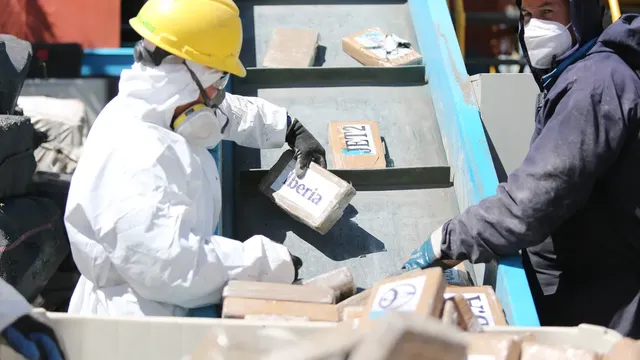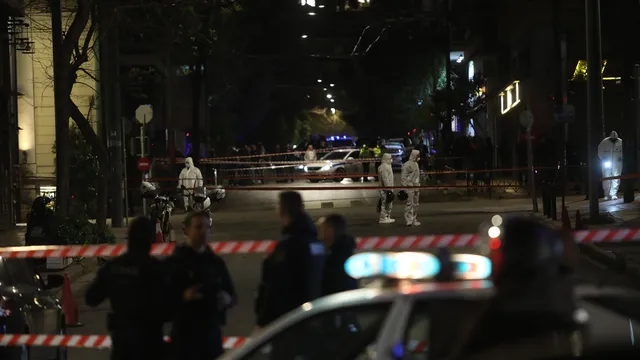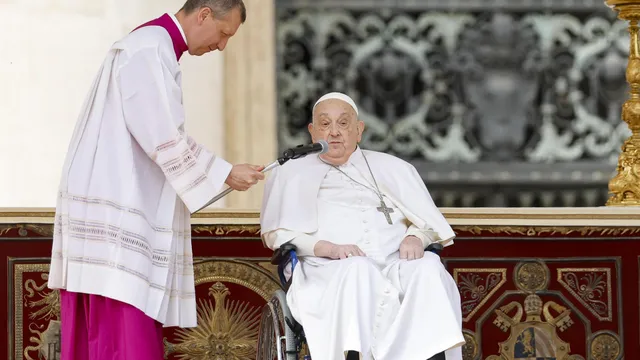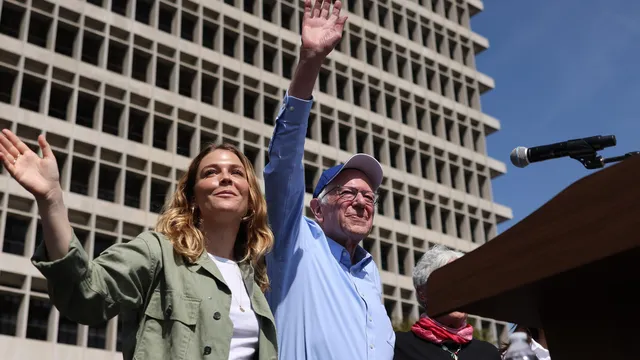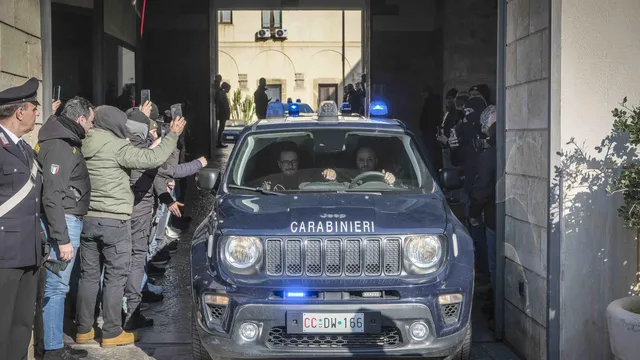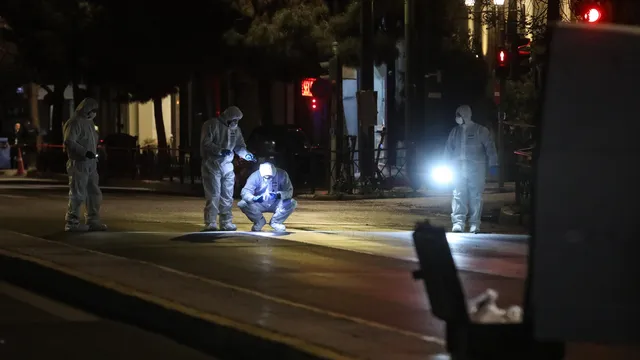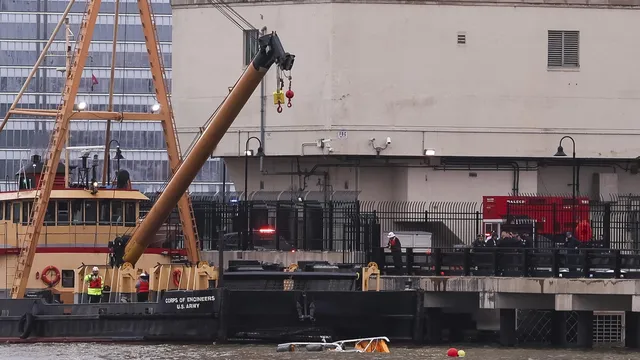If you refuse to cooperate with the criminal network, they kill you.
"The Albanian mafia used to call me and say, 'We want to send 500kg of drugs'. If you don't agree, they kill you," says Cesar (not his real name), who is a member of the Latin Kings, a criminal drug gang in Ecuador. He was recruited by a corrupt police officer from the anti-drug unit to work for the Albanian mafia, one of the most productive cocaine trafficking networks in Europe.
In recent years, the Albanian mafia has expanded its presence in Ecuador, attracted by key trafficking routes through the country, and now controls much of the cocaine flow from South America to Europe.
Although Ecuador does not produce the drug, 70% of the world's cocaine passes through its ports, says Ecuadorian President Daniel Noboa. It is smuggled into the country from neighbouring Colombia and Peru, the world's two biggest cocaine producers. Police say they seized a record amount of the drug last year, most of it cocaine, and it shows overall exports are on the rise.
The consequences are deadly: 781 murders were committed in January 2025, making it the deadliest month in recent years. Many of these are linked to the illegal drug trade.
BBC investigates the supply chain to find out why this crisis is worsening - and how Europe's rising cocaine consumption is fuelling it.
Cesar, 36, began working with the cartels when he was just 14, with one factor being a lack of job opportunities.
"The Albanians needed a problem-solver," he explains. "I knew port guards, drivers, CCTV camera supervisors."
Cesar bribed them to help him smuggle drugs into Ecuadorian ports or to turn a blind eye - and sometimes a camera.
Once the cocaine arrives in Ecuador from Colombia or Peru, he hides in warehouses until his Albanian employers learn of a container about to leave one of the ports on its way to Europe.
Gangs use three main methods to smuggle cocaine in shipments: hiding drugs in the cargo before it reaches the port, smashing containers in port, or attaching drugs to ships at sea.
Sometimes Cesar received up to $3,000 for the work he did, but the incentive wasn't just the money: 'If you don't do the job the Albanians want, they'll kill you'.
Cesar feels some regret for his role in the drug trade, especially for what he calls "collateral victims." However, he believes that the blame lies with the user countries in Europe. "If consumption continues to grow, so will trafficking. It will be unstoppable," he warns.
Ordinary workers, not just gang members, are caught up in this supply chain.
Juan (not his real name) is a truck driver. One day he picked up a shipment of tuna to take to the port. He says something seemed wrong.
"The first alert was when we went to the warehouse and there was only the cargo, nothing else. It was a rented warehouse with no company name," he recalls. "Two months later I saw on the news that containers full of drugs had been seized in Amsterdam. We never found out."
Some drivers unknowingly carry drugs; others are forced - if they refuse, they are killed.
European gangs are attracted to Ecuador because of its location, but also because of its legal exports, which provide a convenient way to hide illegal cargo.
"Banana exports make up 66% of the containers that leave Ecuador, and 29.81% go to the European Union, where drug consumption is growing," explains banana industry representative José Antonio Hidalgo.
Some gangs have even set up fake companies to import or export fruit to Europe and Ecuador as a cover for illegal activities.
"These European traffickers pose as businessmen," says "Jose" (not his real name), a prosecutor who deals with organized crime groups. He speaks only on condition of anonymity because of the threats he has received.
One famous example is Dritan Gjica, accused of being one of the most powerful leaders of the Albanian mafia in Ecuador.
Prosecutors say he had stakes in fruit export companies in Ecuador and in import companies in Europe, which he used to traffic cocaine. The mafioso remains in hiding, but many of his accomplices were convicted after a multinational police operation.
Lawyer Monica Lusarraga defended one of his associates and agreed to speak candidly about her knowledge of the workings of these networks.
"In those years, banana exports to Albania were booming," she says, seemingly disappointed that the authorities didn't realise sooner that criminal groups were using this as a cover: "The whole economy here is stagnant. Yet one of the commodities whose exports have increased is bananas. So two plus two equals four."
Why are exports increasing?
At Ecuador's ports, police and armed forces are trying to control the situation.
Boats patrol the waters, police scan containers of bananas for bricks of cocaine - even police divers search for drugs hidden under vessels.
Everyone is heavily armed, even those who are simply guarding the boxes of bananas before they are loaded into containers. This is because if drugs are found during a search, it is very likely that a corrupt port official will be involved and this could trigger violence.
Despite these efforts, police say the amount of cocaine being successfully exported from Ecuador has reached record highs. Rising demand and economic factors are to blame.
According to the Ecuadorian Interior Ministry, nearly 300 tons of drugs were seized last year - a new record.
Major Cristian Cozar Cueva of the National Police explains that "in recent years, there has been about a 30% increase in seizures that should have reached Europe".
This increase in cocaine shipments increases the danger for those involved in the supply chain.
The Juan truck driver says that the increase in "container contamination" makes him more vulnerable.
He points out that the previous day officers had seized a container with two tons of drugs: "Before it was kilograms, now we're talking about tons."
"If you don't contaminate the containers, you have two options: quit your job or die."
The economy affected by the Kovid pandemic makes more Ecuadorians vulnerable to recruitment by gangs.
A country that has been financially strapped since the pandemic, security forces that have less experience fighting organized crime, and liberal visa rules in the past have made it easier for European gangs to be present in the country after 2020.
Monica Lusarraga notes that 2021 is the year that "the penetration of the Albanian mafia has begun". This period coincides with the "influx" of Albanian citizens and the sharp increase in banana exports, including to Albania.
"This is a lucrative business that harms Ecuador and benefits criminal organisations. How can we accept an economy built on suffering?" asks Lusagara.
A message to Europe
The anger at foreign cartels is not surprising given their contribution to the growing violence in Ecuador. Some traffickers and those who fight them agree on one thing: the trade is fuelled by consumers, especially in Europe, the US and Australia.
UN figures show that cocaine consumption worldwide has reached record levels. Studies have shown that the UK is the second biggest cocaine user in the world.
The UK's National Crime Agency (NCA) estimates that the country consumes around 117 tonnes of cocaine a year and is the largest market in Europe. Consumption continues to grow.
The UK Home Office's wastewater analysis shows that cocaine consumption increased by 7% from 2023 to 2024. NCA operations seized around 232 tonnes of cocaine in 2024 compared to 194 tonnes in 2023.
The NCA's deputy director for threat control, Charles Yates, says this makes the UK a "country of choice" for organised crime groups who are taking advantage of the high demand.
He estimates that the country's cocaine market is worth around £11 billion ($14.2 billion) and that criminal groups make around £4 billion a year in the Island alone.
Those fighting these gangs in Ecuador, such as prosecutor Jose, believe it is up to "countries whose citizens are consumers to exert greater control" over the people who finance the trade.
The victims of this business are many and varied.
According to Hidalgo, it is the banana exporters who suffer reputational and economic damage. For Lusarraga, it is "children and adolescents who are exploited by criminal groups". "There are citizens in Europe who are willing to pay large sums of money to get the drugs they consume. Drugs that end up costing the lives of Ecuadorian citizens," she insisted.
The NCA stresses that in addition to these "catastrophic" consequences for communities along the supply chain, cocaine use leads to additional casualties among users due to cardiovascular and psychological impacts. Deaths related to cocaine use in the UK increased by 30% in 2023 compared to 2022, reaching 1118.
The NCA also warns that the drug exacerbates domestic violence. The agency is adamant that law enforcement efforts to tackle supply are not enough:
"Action on supply alone will never be the answer. What's really important is to change the demand."
This is also Ecuador's message to Europe, from members of drug gangs to the country's president.
Head of State Daniel Noboa, who is seeking a second term in the April 13 presidential runoff election, has made fighting criminal gangs one of his top priorities and has sent the army to combat gang-related violence.
"The chain that ends with 'fun in Britain' involves a lot of violence. The road to the point where one person is having fun involves 20 murders," he told the BBC. | BGNES

 Breaking news
Breaking news
 Europe
Europe
 Bulgaria
Bulgaria
